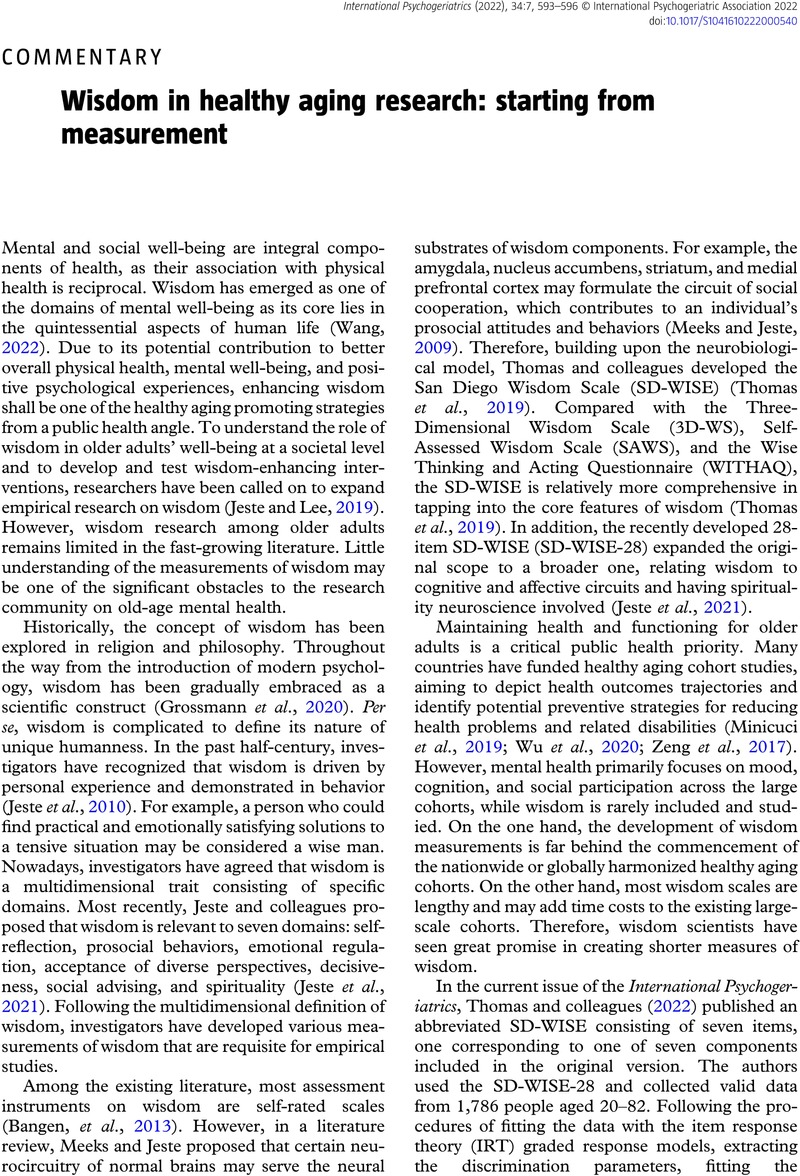Crossref Citations
This article has been cited by the following publications. This list is generated based on data provided by Crossref.
Kim, Hee-Kyung
and
Park, Cheol-Hee
2023.
Effects of General Characteristics, Emotional Labor, Empathy Ability, and Wisdom on the Psychological Well-Being of Female Caregivers Visiting the Homes of Vulnerable Care Recipients and the Elderly.
Behavioral Sciences,
Vol. 13,
Issue. 5,
p.
360.
Rodríguez-Mañas, Leocadio
Murray, Robert
Glencorse, Carole
and
Sulo, Suela
2023.
Good nutrition across the lifespan is foundational for healthy aging and sustainable development.
Frontiers in Nutrition,
Vol. 9,
Issue. ,
Zadworna, Magdalena
2023.
Effects of Wisdom on Mental Health in Old Age: Exploring the Pathways Through Developmental Tasks Attainment and Self-Rated Health.
Psychology Research and Behavior Management,
Vol. Volume 16,
Issue. ,
p.
4541.
Melendez, Juan C.
Delhom, Iraida
Satorres, Encarnacion
and
Bueno-Pacheco, Alexandra
2024.
Psychological Dimensions That Explain Integrity in Older Adults: Examination of a Structural Model.
Clinical Gerontologist,
Vol. 47,
Issue. 2,
p.
307.



